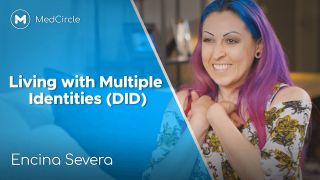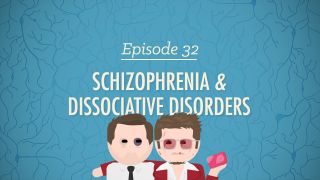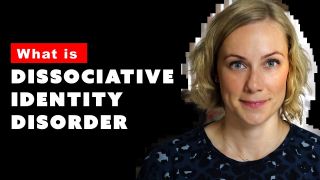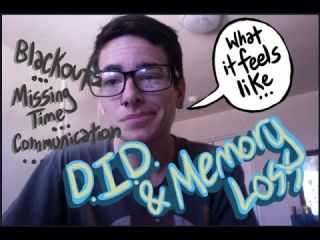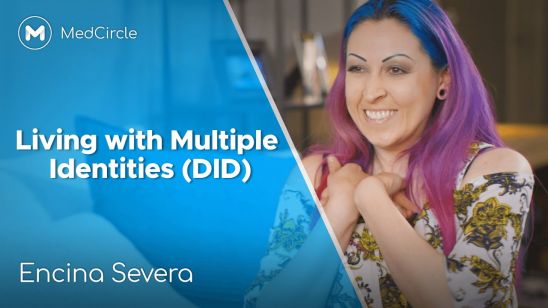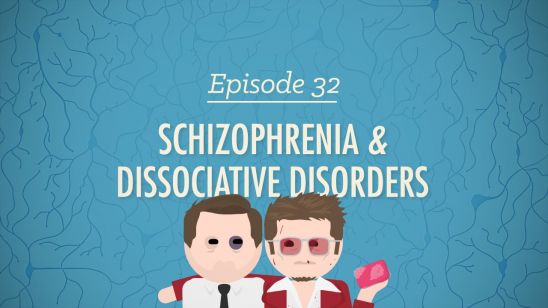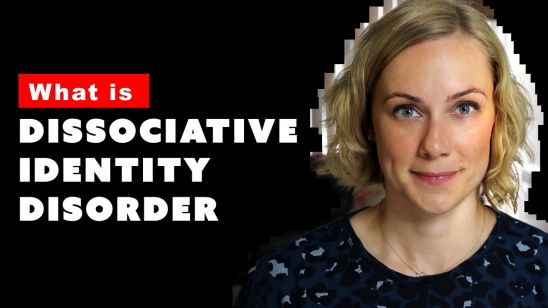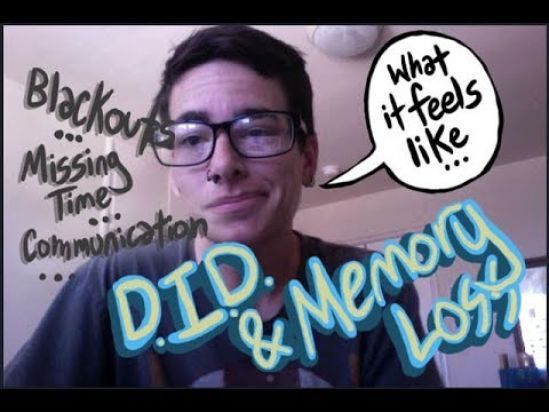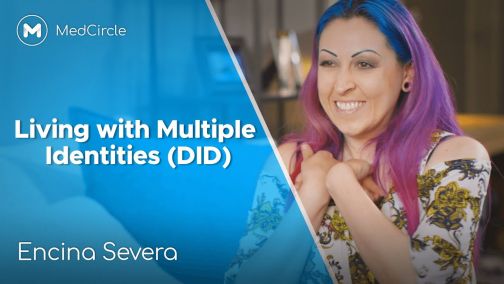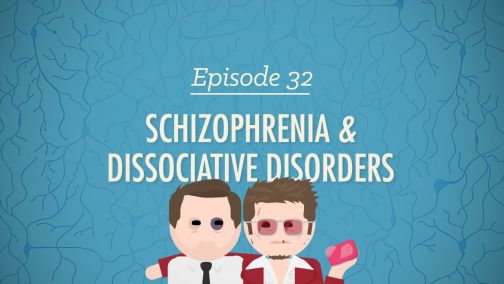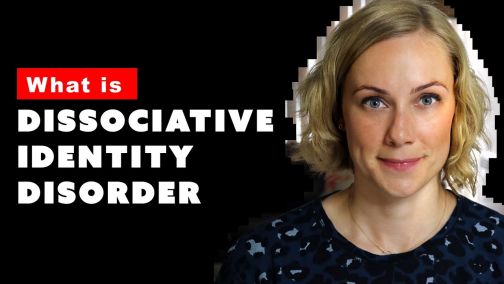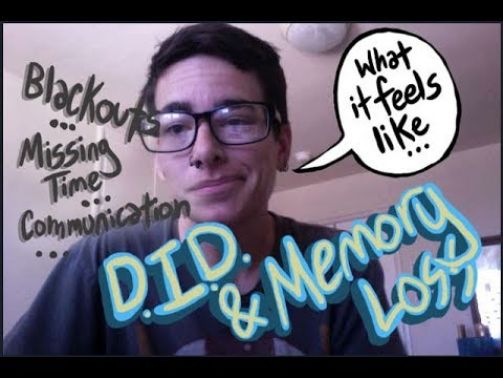Dissociative Identity Disorder
Also known as DID
What is it?
Dissociation is when a person becomes disconnected from some aspect of themselves or the world around them. This feeling is not the same as momentarily zoning out. People with dissociative disorders truly feel like they are no longer connected to who they are, where they are, or the things that they’re experiencing.
Dissociative identity disorder (DID), previously called multiple personality disorder, is a complex condition characterized by severe forms of dissociation. A person with DID develops multiple, fragmented “personalities” or identities. This behavior is thought to be a coping mechanism for those who have endured severe trauma.
People with DID have two or more distinct personalities that they fluctuate between. They often have memory problems as well, including huge gaps in memory that can’t be explained, or alternate versions of memories that conflict with one another. It’s estimated that 2% of people experience dissociative conditions, with women being diagnosed more often than men.
What are the symptoms?
A person with DID alternates between multiple and distinct personalities, called alters. These alters often have their own names, mannerisms, ages, genders, ethnicities and voices. There is normally a primary or “host” identity that uses the person’s given name. The alters tend to contrast heavily with the primary identity. For example, a very passive person may have extremely vibrant and outgoing alters. Some alters may dislike other alters, or deny their existence.
To be diagnosed, a person must meet the following criteria:
- They experience two or more distinct personalities that have their own ways of relating to and thinking about their environment and sense of self
- Their “switch” between personalities involves a change in sense of self, behavior, consciousness, memory, cognition, motor function and sense of agency
- They experience frequent and substantial gaps in memory that cannot be explained by regular “forgetfulness”
- The above symptoms cause a lot of distress and get in the way of their job, social life, interests and interpersonal relationships
Certain personalities may emerge in specific settings, or appear after experiencing some form of stress. In some cases, a personality switch is apparent to others, but this is not always the case.
People with DID may mention hearing voices, having out of body experiences (aka depersonalization), feeling as if multiple streams of thought are taking place at the same time, having emotional reactions that they can’t explain, or feeling as if the world around them is “not real” (aka derealization). They may also experience something called “dissociative fugue” in which they travel somewhere without having recollection of doing so. For example, waking up in a new state without knowing how they got there.
Like other dissociative conditions, DID is believed to be the byproduct of experiencing extreme trauma at a young age. In some cultures, people view the disorder as a form of possession.
What are some common warning signs?
DID can look different in different people. Some may undergo sudden and noticeable switches between personalities, while others may have alters that are more subtle.
If you’re concerned that a loved one has DID, ask yourself the following questions:
- Do they switch between different styles of speech, dress or behavior?
- Have they mentioned enduring early childhood trauma?
- Do they sometimes refer to themselves by different names?
- Do they say that they feel “out of control” of their thoughts and emotions, or as if they’re experiencing multiple streams of thought at once?
- Do they have intense emotional responses to certain scenarios that they later don’t remember or can’t explain?
- Do they forget or misremember important facts about who they are or the things they’ve done?
- Do they describe feeling disconnected from their surroundings or their body, such as saying that what they’re seeing “isn’t real”?
- Do they struggle with depression or anxiety, alongside other symptoms?
These behaviors can’t confirm a DID diagnosis, but they do hint at one. If you feel comfortable doing so, talk to your loved one about this behavior and why you’re concerned.
What causes DID?
The exact causes of DID are unknown. Doctors believe a few factors play a role in its development, including:
- Genetics: It’s thought that people are more likely to develop DID if they have a family history of dissociative conditions
- Trauma: The majority of people with DID experienced intense physical or sexual abuse in childhood. Dissociation may be the brain’s way of coping with this trauma.
- Predisposition: People who are prone to dissociation have an increased likelihood of developing DID.
How is it treated?
The first line of treatment for DID is psychotherapy, followed by medication. Healthy lifestyle habits and social support are recommended as well.
Psychotherapy is a broad term that refers to a range of therapeutic approaches. Common models for coping with DID are:
- Individual psychotherapy: One-on-one sessions that help people better understand and manage their symptoms. Popular forms of psychotherapy for DID include Cognitive Behavioral Therapy (CBT), Dialectical Behavior Therapy (DBT) and Eye movement desensitization and reprocessing (EMDR).
- Hypnotherapy: A form of therapy in which the patient undergoes clinical hypnosis in order to uncover repressed memories, change behaviors, or try and merge their personalities. This is often used alongside individual psychotherapy.
- Adjunctive therapy: Also called “add on” therapy, these strategies are used alongside a primary treatment method to help boost progress. Common types include art or movement therapy that help people connect with parts of their mind that might have been “shut off” by trauma.
There are no medications approved specifically for DID. However, people with the condition often struggle with other disorders, such as eating disorders, substance use problems, or anxiety and depression. Medications, such as antidepressants, tranquilizers or antianxiety drugs, may be used to address those co-occurring conditions.
It’s important to remember that treatment plans are personalized. If you’re seeking help, make sure you work one-on-one with a doctor to create a plan that fits your needs. Just because a medication or therapy helps someone else recover, doesn’t mean it’ll be the right solution for you. Don’t ever feel guilty about asking for help, taking meds or going to therapy. Addressing your mental health is a productive and courageous thing to do.
How can I help a loved one with DID?
It can be hard to know how to react when someone you love isn’t doing well. Do they want to talk about it, or would they prefer to keep their experiences private? Will you push them away by starting the conversation?
There are no easy answers to these questions. Every person handles their mental health differently. That said, we all want to feel loved and supported. Showing someone that you’re invested in their wellbeing can make a world of difference.
Here are some ways to do so:
- Educate yourself: Read up on symptoms, treatment options, and healthy living recommendations. Try and understand what your loved one is going through so you are better equipped to talk to them about it. This will also make you a valuable resource when it comes time to find treatment.
- Advocate treatment: Asking for help can be hard. Societal stigma often keeps people from opening up to others about their symptoms. Support your loved one by helping them research different treatment methods, or doctors in their area. If they’d like, go to a few sessions with them. Remind them that there’s nothing weird about getting help, and that you’re proud of them for following through.
- Use empathy: The amnesia associated with DID can feel very real. Try and refrain from snapping at them when they can’t remember important facts or seem disoriented. Stay calm and remember what they’re going through. Remind them that you’re there for them and that you love them.
- Stay Calm: If you experience a switch while with them, try and stay calm and respond to them as best you can. Hostility or fear from others can increase their stress levels and make the episode far more distressing.
- Be patient: Don’t take it personally if they lash out at you. They are battling something that’s very hard to overcome. Their distance has nothing to do with who you are as a person. Keep showing up for them even when it feels like it’s not helping. The act alone lets them know that they have people in their life who care.
And finally, remember to take care of yourself. Find counseling of your own if you are struggling to cope with their condition.
What other resources are out there?
Want to learn more, find a doctor, join a support group or speak to a counselor? The below resources might be able to help:
- An Infinite Mind
- International Society for the Study of Trauma & Dissociation
- Sidran Institute
- Zur Institute
- Crisis Text Line
- BetterHelp
- Psychology Today Directory
- American Psychiatric Association
- Medicaid Eligibility Information
- Open Path Collective
- Resources for POC, LGBTQ+ and disabled individuals
- Anxiety and Depression Association of America
- National Network of Depression Centers
- Medicine Assistance Tool
- NeedyMeds
- Erika's Lighthouse
- Anxiety Network
- Anxiety Central Forums
- National Social Anxiety Disorder Center
Support our work
We’re on a mission to change how the world perceives mental health.



